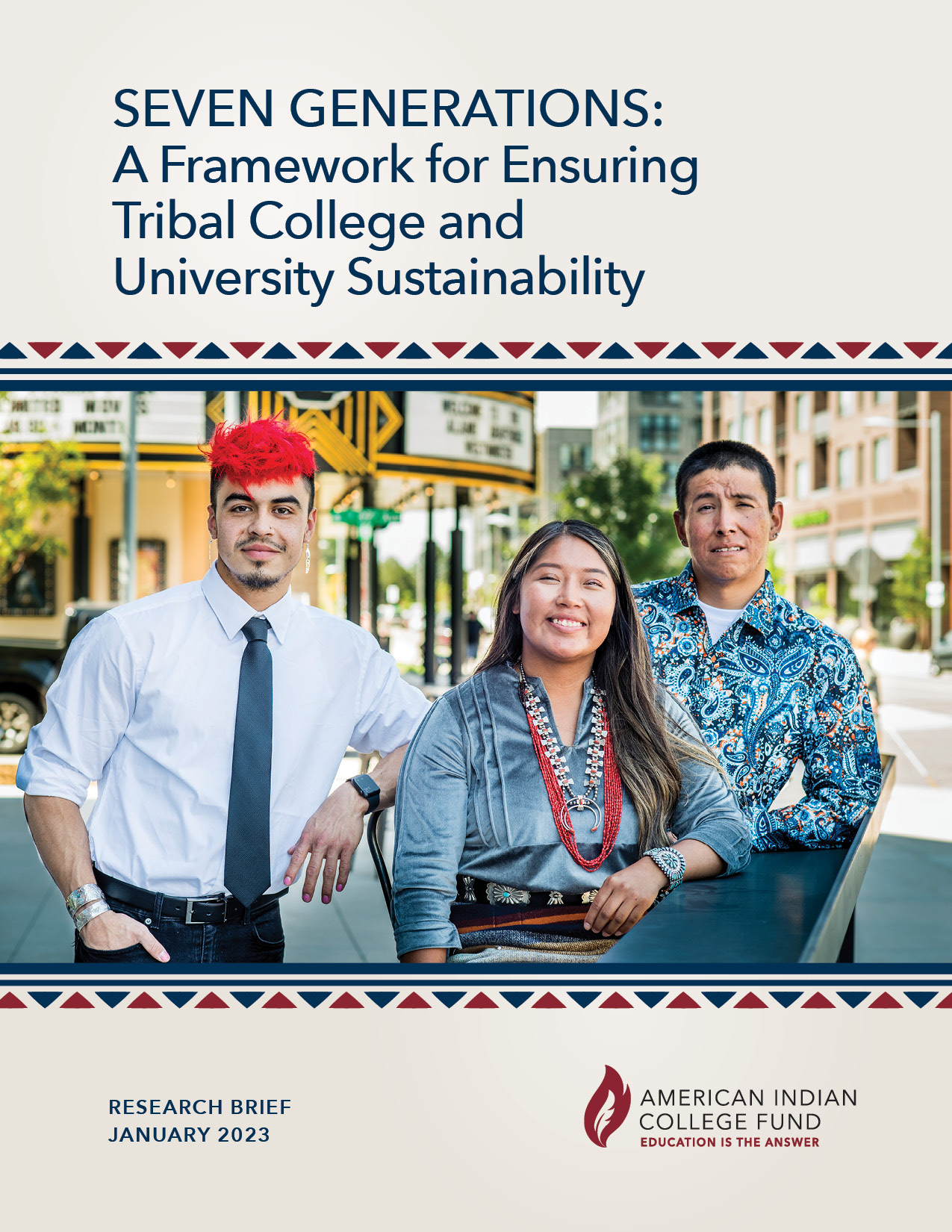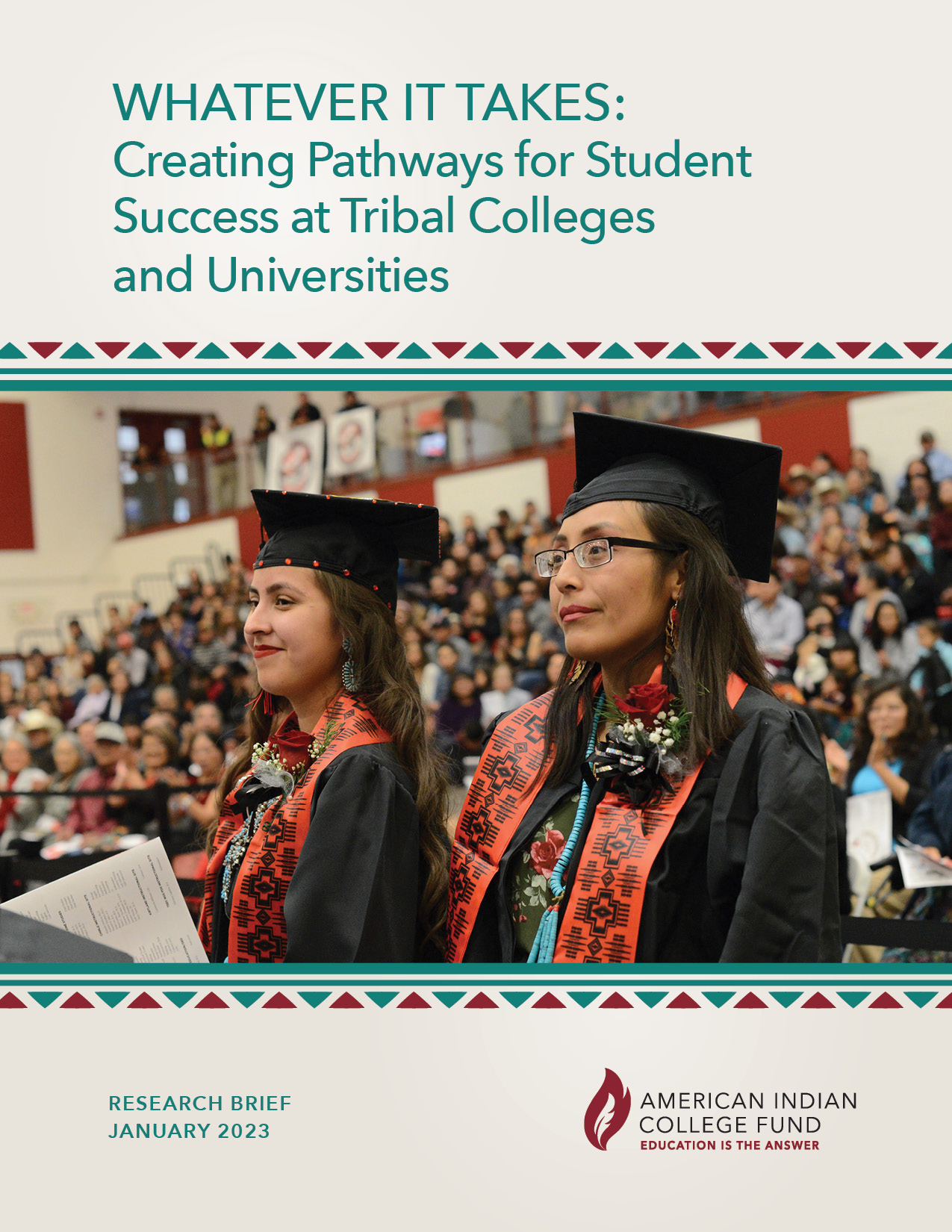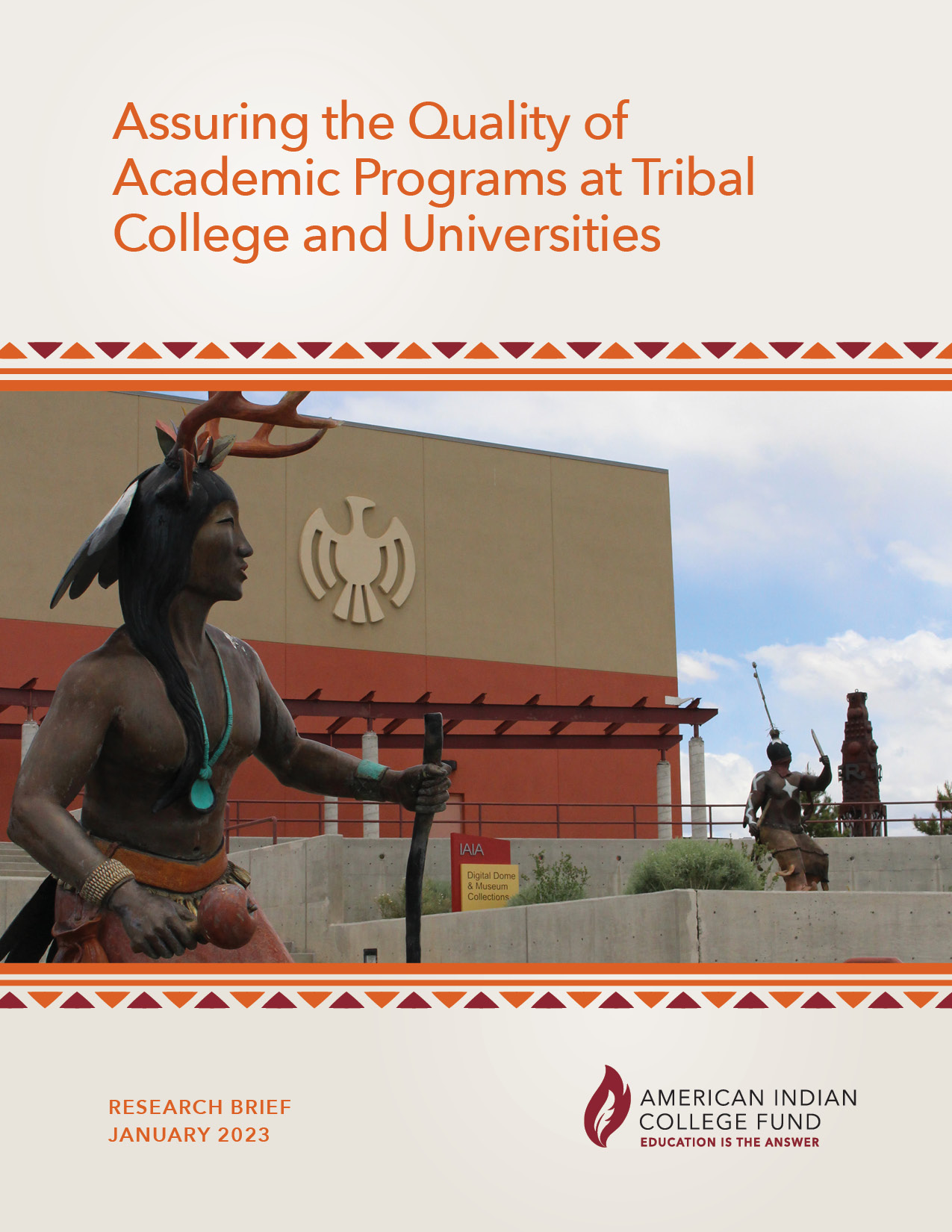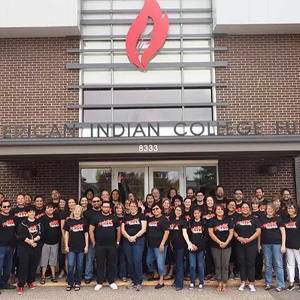American Indian College Fund TCU Research: Students, Programs, and Sustainability
The American Indian College Fund (College Fund) is releasing three briefs with findings from a three-part research project on tribal colleges and universities it conducted in 2021. The focus of the research includes tribal college and university (TCU) student support services, program development and review, and sustainability. TCUs are unique higher learning institutions located on or near Indian reservations with the dual mission to provide tribal citizens higher education opportunities while ensuring that degree programs, assessment, and student support structures are based in community and culture.
Unlike other higher education institutions, TCUs were chartered by tribal nations as an act of self-determination in higher education and to support Native nation-building. They play a critical role for their students and tribal communities. Despite their importance, little research has been done about TCUs, and instead research focuses on the Indigenous student experience at predominantly white institutions. The College Fund partnered with a selection of TCUs to begin filling this data gap and to offer insights into TCU practices and how to best support them.
SEVEN GENERATIONS: A Framework for Ensuring Tribal College and University Sustainability
In 1968, Navajo Community College (now Diné College) became the first tribally chartered, postsecondary institution and launched the tribal college movement. Tribal colleges and universities
(TCUs) were created (1) to provide tribal citizens with a culturally relevant education that preserves and perpetuates tribal culture and language, and (2) to meet the workforce needs of Tribal Nations.
Today there are 35 accredited TCUs that continue to serve this dual mission, but they face challenges to their long-term sustainability and little research has been conducted in this area. The purpose of this study was to develop a preliminary framework that identifies and describes the key components of TCU sustainability. The framework was informed by a literature review, a review of TCU strategic plans, and interviews with leaders, board members, and faculty and staff members from five TCUs located in Arizona, New Mexico, and North Dakota. The nine-point framework that emerged can help tribal colleges to focus their time and resources so they can flourish and serve their students and communities for generations to come.
WHATEVER IT TAKES: Creating Pathways for Student Success at Tribal Colleges and Universities
Tribal colleges and universities (TCUs) were formed to provide a culturally relevant postsecondary education to American Indian and Alaska Native students. TCUs offer an array of services to support their students’ success; however, little is known about the breadth of these services. This research brief summarizes a qualitative study of 34 leaders, faculty members, and staff members from five TCUs.
The study examined how student success is defined at TCUs and the programs and activities TCUs are implementing to support their students. At TCUs, the definition of student success goes beyond the traditional measures of enrollment, retention, and graduation to include students gaining cultural knowledge, impacting their communities, and meeting their individual goals. TCUs focus their programs and activities on three areas: outreach, retention, and postgraduation. They are implementing an impressively large number of programs that can be characterized as holistic, student-tailored, culturally based, and family- and community-focused. All TCU staff, from custodians to leaders, embody a unique, “whatever it takes” philosophy of supporting their students.
Assuring the Quality of Academic Programs at Tribal College and Universities
As institutions of higher education, tribal colleges and universities (TCUs) share many of the same educational quality assurance practices as their peers, such as pursuing accreditations, evaluating the need for new academic programs, and regularly reviewing current academic programs. Unique to TCUs, they have a dual mission to provide academic programs that incorporate tribal culture and language and to respond to the needs of the communities that chartered them. Little research has been done to understand quality assurance practices in the TCU setting.
This study sought to fill the gap through interviews with leaders and faculty and staff members at five TCUs—three in North Dakota and two serving the Navajo Nation. There were strong similarities across TCUs. First, all five TCUs had a similar formal, four-step process to develop new academic programs. Second, all TCUs engaged in degree program development to add new degree levels and add options at an existing degree level. Third, all TCUs conducted regular reviews of their academic programs using a wide range of criteria, including graduation rates, job placements, student interest, and community needs. Fourth, contextual factors such as their rural locations, institutional identities, and integration of tribal culture and language influenced the design and selection of academic programs at the TCUs.
Featured Reports
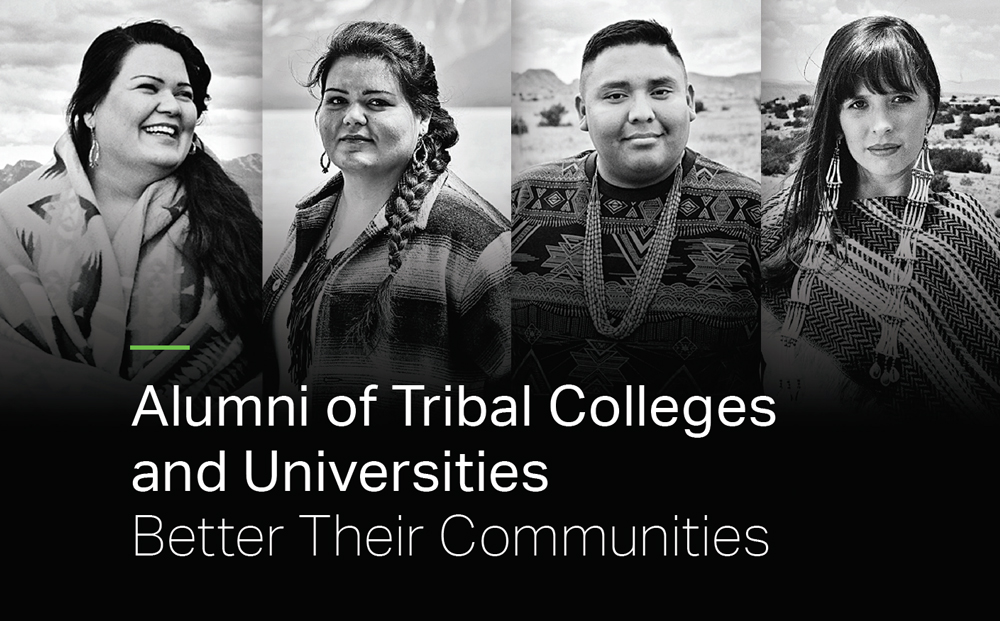
Alumni of Tribal Colleges and Universities Better Their Communities
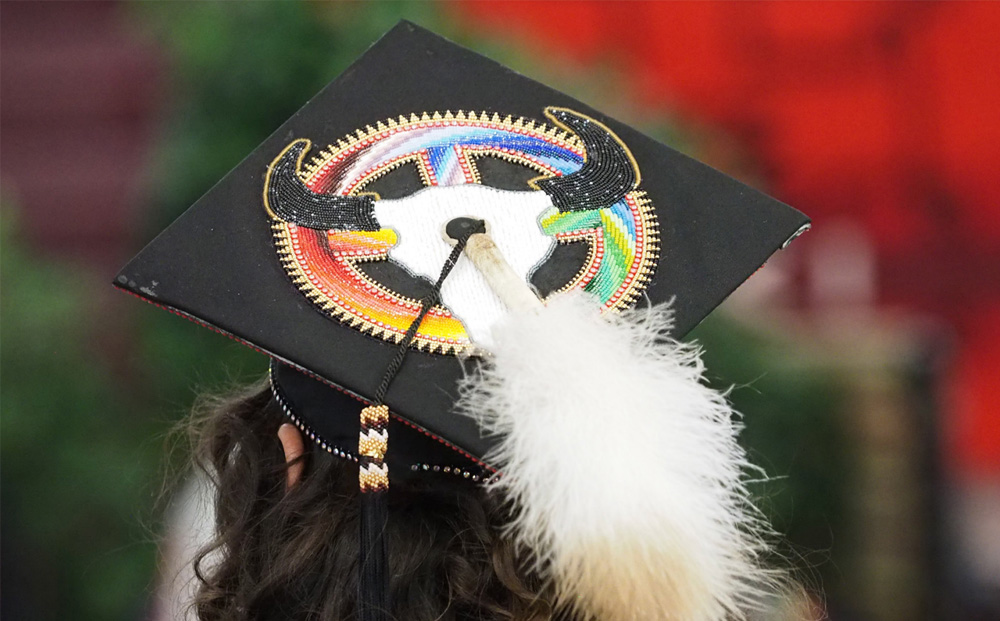
The Tribal Colleges and Universities #RealCollege Survey
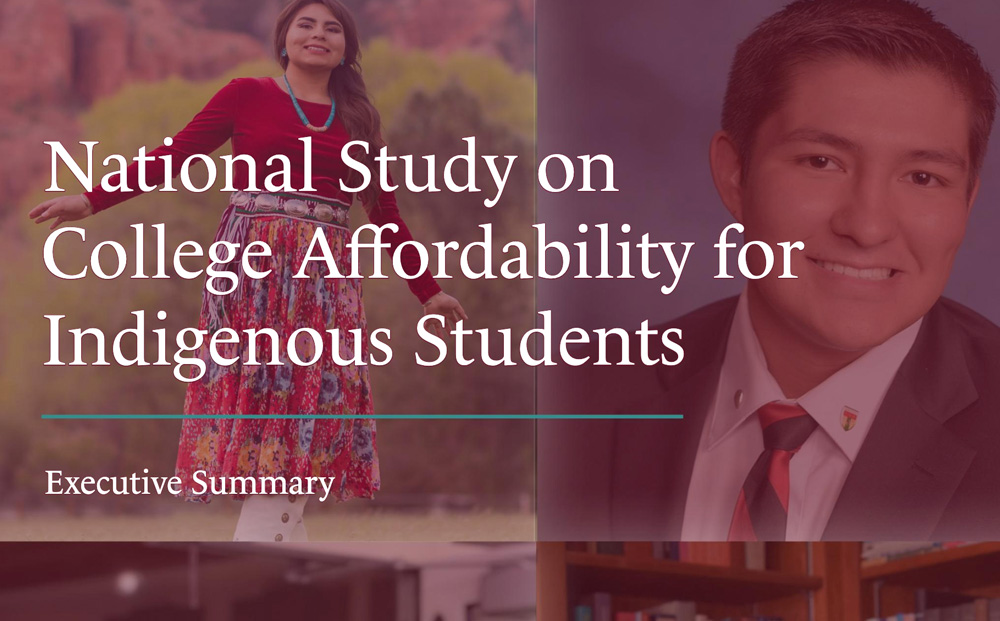
College Affordability Study


